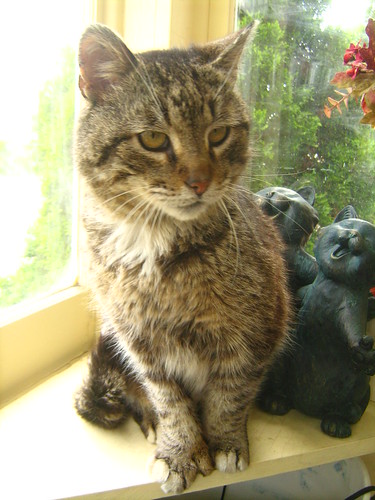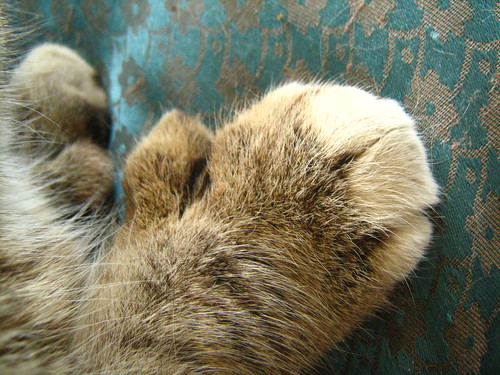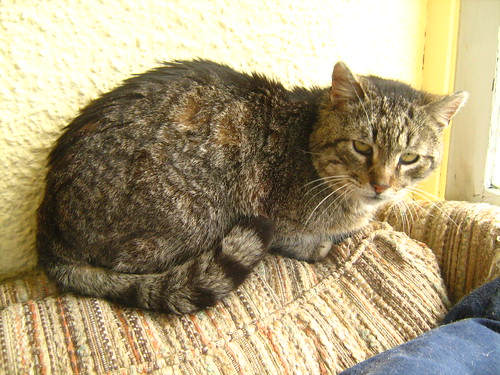In a forest by a river, a blue jay and a box turtle met and became friends. The blue jay could look around from the treetops and report on any gossip in the area, while the box turtle had a good sense of smell and strong front legs and claws to dig up choice morsels to share with the blue jay.
Because the box turtle sometimes needed to get the blue jay's attention when the jay was high up in a tree, they developed a semaphore system so that they could ask simple, short questions without either of them having to leave their immediate location. The box turtle used this system more frequently, because the blue jay could simply fly down to wherever the turtle was to talk.
Well, one day, the blue jay gets a question flashed at him from the turtle. He wasn't at the treetop; he was on a lower branch, so he begins to berate the turtle. "I hate it when you use the semaphores when I'm not at the top of the tree!"
The turtle was very confused by this. "What did you want me to do, scream from down here? I thought that would be less polite than using the signals."
The jay hopped angrily from one foot to another, fluffing out his feathers self-importantly. "I am really tired of using the semaphores. If you need to talk to me, the least you could do is come up and speak to me in person!"
If the turtle had eyebrows, one would have been raised at that moment. "How do you expect me to do that, exactly? You do realize that I am a BOX TURTLE, and therefore I do not have wings? And I can't climb like a fox or bear!"
"Well I don't know. I am just sick and tired of using those semaphores!" The bluejay fluttered off in a squawking huff, shitting as he went to express his displeasure.
The turtle sat at the bottom of the tree, aggravated, and muttered, "Why should I dig up grubs for him, if he's just going to be like that?"
"Hey hey whatcha doin?!" said a chirpy voice. Box turtle looked up to see a dear treefrog friend, who had just awakened as the sun was setting. The little gray frog blended perfectly with the bark of the tree, but hopped around, eyeing the air for flying insects.
"Hey, frog. Blue jay's been kind of a jerk to me today."
"Yeah? HEY LOOK A LACEWING!" The frog flicked out his tongue and swallowed a bright yellow insect. "Tangy!"
"Yeah, he thinks that, if I want to talk to him, I should come up into the tree instead of using semaphores."
"I don't really deal with those semaphore things; they aren't too visible at night," the frog replied, snatching a silent-winged moth with lightning speed. "So I can understand how he feels."
"Er, right, but we are using them during the day, so that isn't really a problem," the turtle said, sniffing at the ground and digging up a fat earthworm. "I'm not too hungry, you want this?"
"Ohhh!" The frog slurped it down voraciously, stuffing the worm into his mouth with his forelegs. "I guess that makes sense; when females communicate with us, they don't use voices, which makes it hard--only our males can talk."
"Yeah, that is a totally different situation. He seems to think I can just climb right up into the tree and talk to him instead."
"Well, it is not fair for him to expect you to climb all the way up there, but can't you just meet him halfway? That's what I'd do." The frog clambered over the tree's trunk, snatching up ants and eating them like popcorn. "Not as tangy as lacewings, but close! That formic acid is delish."
"Halfway? You're a treefrog, you CAN meet him halfway. I'm a
turtle. I don't have wings. I don't have sticky toe pads. I don't have agile limbs like a fox."
"Right, but don't you think that you'd eventually be able to do it if you practiced?"
"How is practice going to change the very nature of what I am?"
"I don't know. I'm sure there has to be a way to work it out. I gotta go, I hear a bunch of flies across that glen; I bet they're chewing on something delicious and dead! Bye!" The frog hopped onto the turtle's shell for a quick hug, and bounced away.
The box turtle withdrew into her shell and tightly closed it up, annoyed with the entire world. A couple of hours later, she felt something nudge her. Cautiously peeking out, she saw her best friend in the world, a handsome fox, with flowing tail, wide grin, and crafty eyes. "You okay, turtle?" he asked.
"No, Blue Jay is making me really mad." She told the fox her experience with blue jay, and what the treefrog had said. He licked her nose sympathetically.
"I know I can climb trees, but I also know that some cannot climb trees. By the way, there is some really tasty looking fruit up that tree over there. You want me to climb up and get you some?"
The turtle nearly cried with relief at having someone as understanding as the fox. "Yes. And next time you see Blue Jay, would you eat him for me?"
The fox laughed. "I'll see what I can do. For now, why don't you dig up some worms for us, and I'll go get that fruit, and then we can take a nap together.
"That would be great, Fox. I am so lucky to have a friend like you."














